If you are a proud owner of an Audi car, you might have noticed the EPC light on your dashboard at some point. Understanding what this light means and its significance is crucial to maintain the health of your vehicle. In this section, we will guide you through the meaning of the EPC light and its importance for your Audi car.
EPC stands for Electronic Power Control, and it serves as an indicator of your Audi’s engine management system. If the EPC light illuminates on your dashboard, it implies that the engine control module has detected some issues. The EPC light can turn on due to a wide range of problems, from mild to severe.
It is essential to address any issues related to the EPC light promptly. Failure to do so can lead to significant problems with your vehicle and cause damage to the engine.
Key Takeaways:
- The EPC light indicates issues with your Audi’s engine management system.
- In case of an EPC warning, prompt action is essential to avoid damage to the engine.
What is the EPC Warning Light on Your Audi?
If you own an Audi car, you may have noticed an EPC warning light on your dashboard. The EPC light stands for Electronic Power Control and is a built-in safety feature designed to alert drivers to potential mechanical issues with their vehicle.
When the EPC warning light illuminates, it means that there is a fault with the engine management system. This fault can range from minor issues such as a loose gas cap, to more severe problems like a malfunctioning throttle body.
It’s important to note that when the EPC light comes on, it may not always be accompanied by other warning lights. Therefore, it’s crucial to take the EPC warning light seriously and address any issues immediately.
Ignoring the EPC warning light could ultimately lead to a severe malfunction or even a breakdown of your Audi car. So, it’s always best to get your vehicle checked by a qualified technician as soon as possible.
What does the EPC warning light on an Audi car mean?
The EPC warning light on an Audi car indicates an issue with the engine management system. This system controls various aspects of your vehicle, including the throttle, transmission, and other components.
When the EPC warning light illuminates, it means that there is a fault in the engine management system that needs immediate attention. In most cases, the fault can be diagnosed by connecting your Audi car to a diagnostic tool that can read the fault code.
Some of the most common reasons why the EPC warning light comes on include:
| Reasons for EPC Warning Light | Description |
|---|---|
| Malfunctioning throttle body | The throttle body controls the airflow into the engine. If it malfunctions, it can cause the EPC warning light to come on. |
| Issues with the fuel system | If the fuel system is not functioning correctly, it can cause the EPC warning light to come on. This could be due to a faulty fuel pump, fuel pressure sensor, or fuel filter. |
| Loose or damaged sensors | A loose or damaged sensor can cause the EPC warning light to come on. This could be due to a damaged oxygen sensor, a damaged mass airflow sensor, or a malfunctioning coolant temperature sensor. |
| Electrical issues | Issues with the electrical system, such as a malfunctioning alternator or battery, can cause the EPC warning light to come on. |
It’s essential to get your Audi car checked by a qualified technician if the EPC warning light comes on. They can diagnose the issue and provide you with the necessary repairs or maintenance to keep your vehicle running smoothly.
Common Causes of the EPC Light on Your Audi
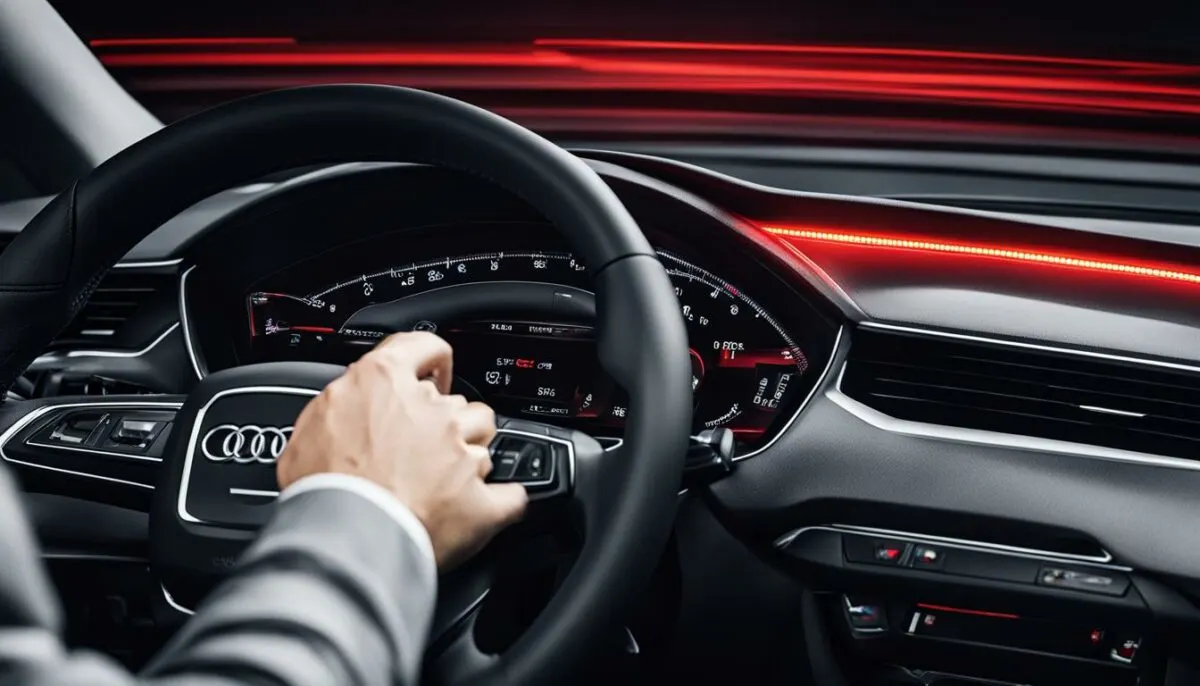
The EPC light on your Audi is a warning sign that indicates an issue with the Electronic Power Control (EPC) system. There are several common causes that can trigger this warning light, and it’s essential to identify the root cause to address the problem promptly.
1. Faulty Mass Airflow Sensor
One of the most common reasons for EPC issues on an Audi is a faulty mass airflow sensor. This component measures the air intake into the engine and sends the information to the engine control unit (ECU). A malfunctioning mass airflow sensor can cause the engine to receive incorrect information, leading to a decrease in performance and an EPC warning light.
2. Malfunctioning Throttle Body
The throttle body is responsible for regulating the airflow into the engine. If it malfunctions, the engine may not receive enough air or fuel, causing it to run poorly and trigger an EPC warning light. In some cases, you may experience difficulty in accelerating, and the car may feel sluggish.
3. Damaged Wiring or Connections
Broken or damaged wiring could also cause the EPC warning light to illuminate. If the sensors or control units don’t receive the correct signals, the EPC system may perceive a fault and trigger the warning light. Checking the wiring and connections to ensure that they are secure and in good condition can help prevent this issue.
4. Faulty Brake Switch
The brake switch informs the ECU when the brake pedal is engaged. If the brake switch is faulty, it may not communicate correctly with the ECU, causing the EPC light to turn on. You may also experience issues with your brake lights and cruise control.
5. Failed ECU
If all other potential causes have been ruled out, a failed ECU could be the problem. This scenario is rare, but it still happens. The ECU controls many key components of the vehicle, and failure could cause the EPC warning light to illuminate.
It’s crucial to address EPC issues promptly to avoid any further damage to your Audi. Ignoring warning signs could lead to more severe problems and cause more damage to your vehicle, leading to costly repairs.
Identifying the cause of your EPC warning light can be challenging, and it’s often best to seek professional assistance to diagnose and repair the problem. However, if you are confident in your abilities, you may be able to fix some of the issues yourself. Regular maintenance, such as tune-ups and oil changes, can help prevent EPC problems from occurring.
Symptoms of EPC Issues on Your Audi
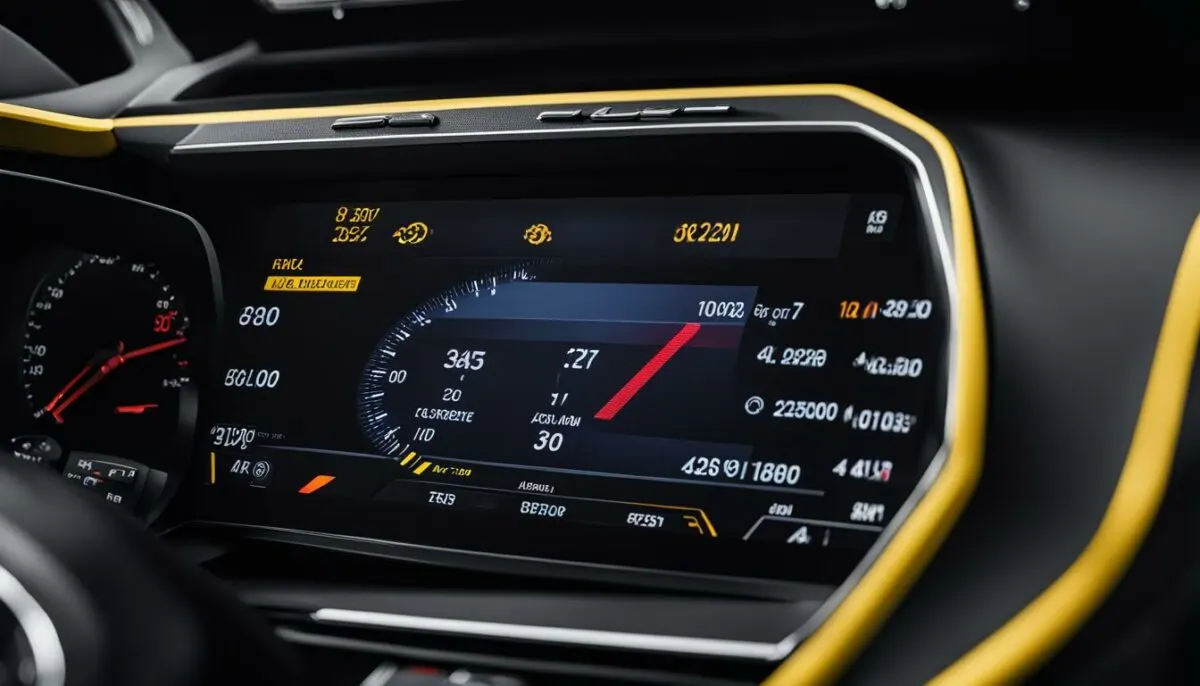
When your Audi’s EPC warning light illuminates on your dashboard, it’s important to understand the symptoms that may accompany EPC issues. These symptoms can indicate underlying problems that need to be addressed promptly to avoid further damage to your vehicle.
Common Symptoms of EPC Issues on Your Audi
- Loss of power
- Difficulty accelerating
- Engine misfires or stalling
- Reduced fuel efficiency
- Difficulty starting the engine
- Increased exhaust emissions
- Unusual noises from the engine or exhaust system
If you notice any of these warning signs, it’s important to take your Audi to a qualified mechanic or dealership for a thorough diagnostic evaluation. Ignoring these symptoms can lead to further EPC issues and potential damage to your vehicle.
It’s important to note that not all EPC issues will produce these symptoms, and some symptoms may be indicative of other problems in your Audi. Therefore, it’s crucial to have a professional evaluate your vehicle to accurately diagnose any issues.
Remember, your Audi’s EPC light is a warning system that alerts you to potential problems with your vehicle. It’s important to heed these warnings and take action promptly to avoid further, more severe, damage.
Understanding EPC Fault Codes on Your Audi
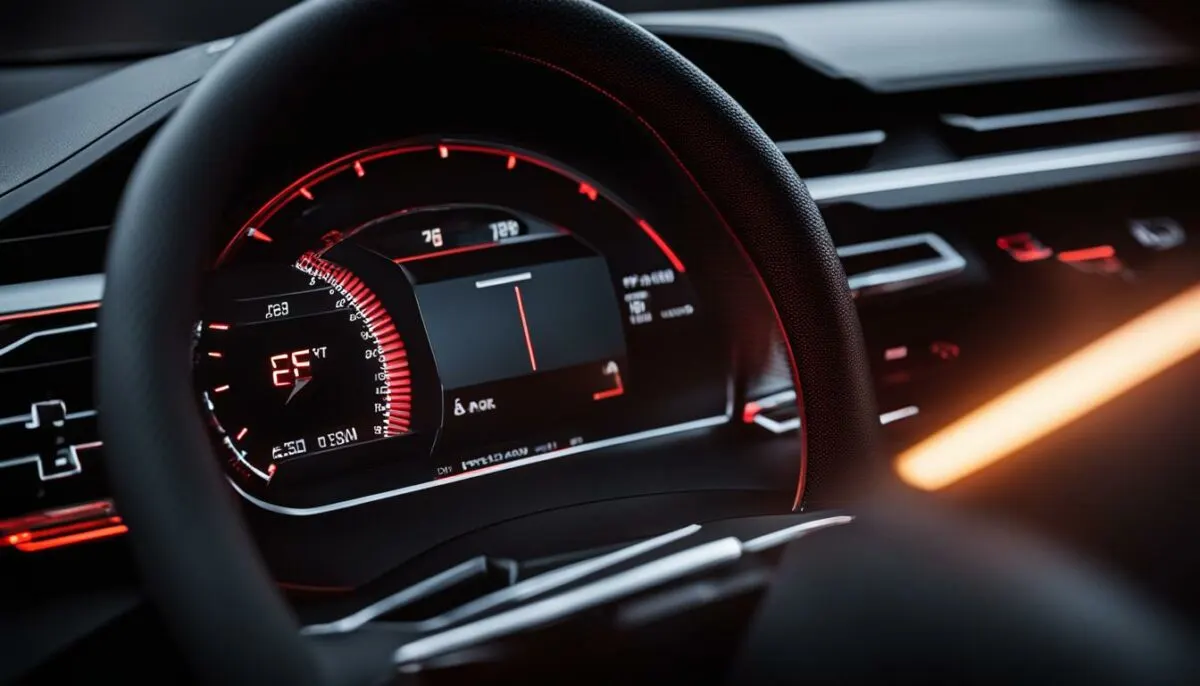
When the EPC warning light illuminates on your Audi’s dashboard, it means that a fault code has been generated by the car’s onboard diagnostic system. These codes are cryptic sequences of letters and numbers that can appear intimidating at first glance.
However, these EPC fault codes can provide valuable insights into the root cause of the issue in your Audi. To understand these codes, you can use an OBD-II scanner, which plugs into your car’s diagnostic port and reads the codes.
Each EPC fault code corresponds to a specific issue in your Audi, ranging from minor electrical faults to severe mechanical problems. By decoding these codes, you can get a better idea of what needs to be fixed and how to go about it.
Common EPC Fault Codes on Audi Cars
Here are some of the most common EPC fault codes that you may encounter on your Audi:
| Code | Description |
|---|---|
| P0322 | Ignition/Distributor Engine Speed Input Circuit No Signal |
| P0299 | Turbo/Supercharger Underboost Condition |
| P0106 | Manifold Absolute Pressure/Barometric Pressure Circuit Range/Performance Problem |
It’s important to note that these codes are not universal and may vary depending on your Audi’s specific model and year. Therefore, it’s crucial to consult your car’s manual or a trusted mechanic to ensure that you are interpreting the codes correctly.
Once you have identified the EPC fault code, you can research and determine the possible causes and solutions to the problem. For complex issues, it’s best to seek the expertise of a professional mechanic, who can provide an accurate diagnosis and repair your Audi effectively.
Fixes for EPC Issues on Your Audi
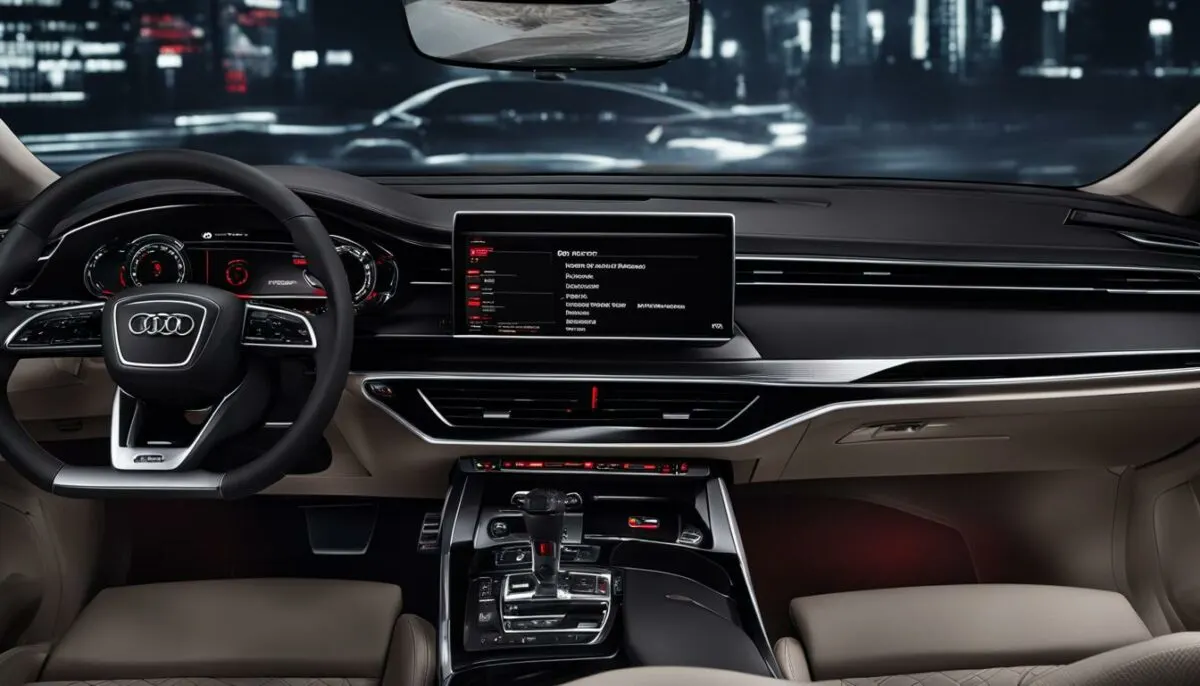
If you have identified an EPC fault on your Audi, you may be wondering what your options are for resolving the issue. Depending on the severity and nature of the problem, there are different approaches you can take.
Please note: Before attempting any fixes, it’s important to diagnose the root cause of the issue. Refer to Section 5 for guidance on interpreting EPC fault codes.
DIY Fixes
If you’re comfortable with car maintenance and want to attempt fixing the issue on your own, there are a few DIY fixes you can try:
| DIY Fix | Difficulty Level |
|---|---|
| Check and clean the throttle body or mass airflow sensor | Easy |
| Replace the spark plugs | Medium |
| Replace vacuum lines | Medium |
Keep in mind that attempting DIY fixes may void your warranty if the car is still under the manufacturer’s coverage.
Professional Assistance
For more complex issues, it is recommended to seek professional assistance. Take your Audi to a trusted mechanic or dealer who has experience with Audi vehicles. They can diagnose the issue and provide appropriate repairs.
Depending on the severity of the issue, repairs can range from simple fixes to more extensive repairs such as replacing the throttle body or the ECU (engine control unit).
It’s important to address EPC issues as soon as possible to avoid any potential safety risks and prevent further damage to your vehicle.
Preventing EPC Problems on Your Audi
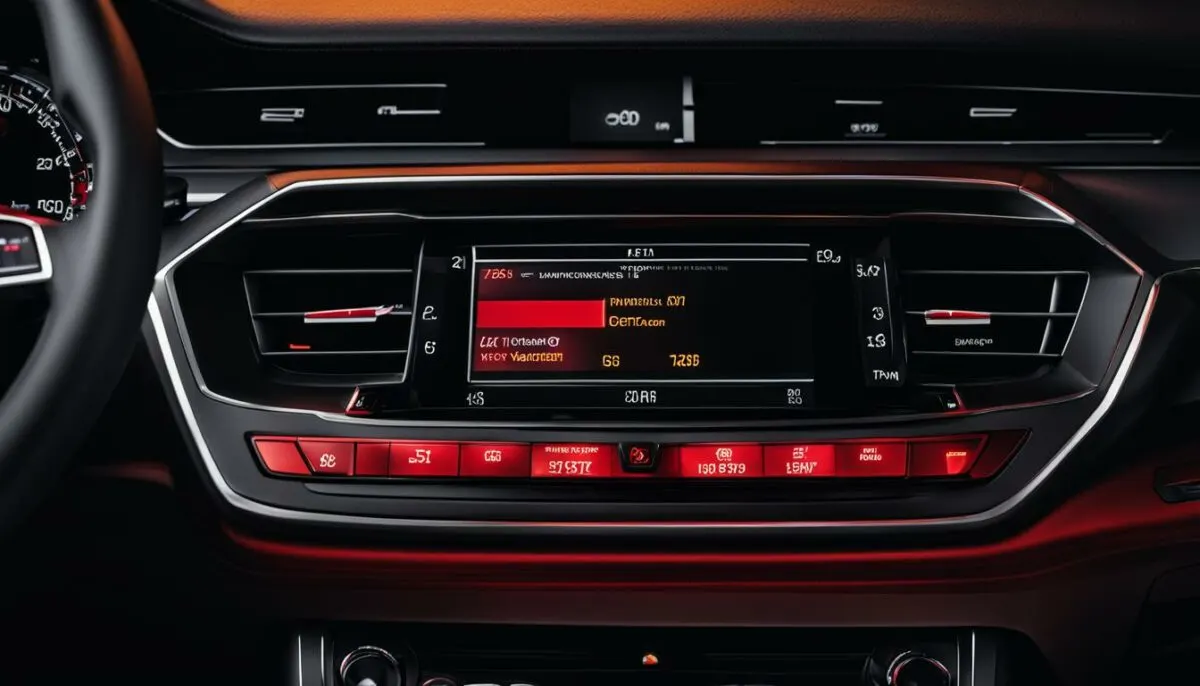
While some EPC problems may be unavoidable, there are steps you can take to minimize the risk of encountering such issues while driving your Audi.
Regular Maintenance
One of the most important preventative measures you can take is to ensure your Audi receives regular maintenance. This includes oil changes, tire rotations, brake inspections, and other services recommended by the manufacturer. Keeping your car in good condition can help prevent mechanical issues that may trigger the EPC light.
Replace Faulty Parts
If you notice any symptoms of EPC issues on your Audi, such as reduced acceleration or unusual noises, it’s essential to have your vehicle inspected by a qualified mechanic. Replacing any faulty parts immediately can prevent further damage to your car and minimize the likelihood of encountering EPC problems in the future.
Check Engine Components
Several engine components can contribute to EPC issues, such as the throttle body or the oxygen sensor. As part of your regular maintenance routine, ensure that these parts are checked and cleaned or replaced as needed. Regular engine inspections can help prevent EPC issues from arising in the first place.
Avoid Aggressive Driving
Your driving habits can also play a role in EPC problems on your Audi. Aggressive driving, such as rapid acceleration or hard braking, can put additional stress on your car and lead to mechanical issues. To minimize the risk of encountering EPC problems, drive defensively and be mindful of your car’s performance.
Following these preventative measures can help keep your Audi running smoothly and reduce the likelihood of encountering EPC problems. However, if you do experience any issues, it’s essential to have your car inspected by a qualified mechanic to address the problem promptly.
Other Dashboard Warning Lights to be Aware of

While the EPC warning light is significant, there are other dashboard warning lights you should also familiarize yourself with to ensure safe and efficient driving.
The first is the engine warning light, which indicates a problem with the car’s engine or emission system. If this light comes on, it’s important to have your car checked by a professional mechanic as soon as possible.
The second is the oil pressure warning light, which signals low oil pressure or a malfunctioning oil system. It’s vital to address this issue immediately to prevent engine damage or failure.
The third is the battery warning light, which indicates that your car’s charging system is not working correctly. If ignored, this could lead to a dead battery and a stranded vehicle.
Finally, the brake warning light could also come on, indicating a problem with your car’s braking system. If you suspect an issue with the brakes, it’s crucial to get it checked out immediately to avoid potentially dangerous driving situations.
Being aware of these warning lights and what they signify can help you identify issues with your car promptly and take the necessary actions to address them. Remember that regular maintenance and upkeep of your Audi can also help prevent warning lights from coming on in the first place.
Conclusion
In conclusion, understanding what EPC means on your Audi car is crucial in ensuring that your vehicle is functioning correctly and safely. We have explored the meaning of the EPC warning light, its common causes, symptoms, fault codes, and different fixes for EPC issues on your Audi.
It is recommended to seek professional assistance if you encounter persistent EPC problems. Also, preventive measures such as regular maintenance, keeping tabs on other dashboard warning lights, and avoiding aggressive driving can minimize the chances of encountering EPC problems on your Audi car.
We hope this guide has provided you with valuable insights to help you maintain the performance and safety of your Audi car. Remember, a well-maintained car not only drives well but also keeps you and your passengers safe.
FAQ
What does the EPC light mean on my Audi car?
The EPC light stands for Electronic Power Control and is an indicator that there may be an issue with your Audi’s engine or electronic system. It is important to have your vehicle checked by a professional to diagnose and address any underlying problems.
What is the purpose of the EPC warning light on my Audi?
The EPC warning light alerts you to potential issues with your Audi’s engine or electronic system. When the light illuminates, it is advisable to stop driving and have your vehicle inspected as soon as possible to prevent further damage.
What are the common causes of the EPC light on my Audi?
The EPC light can be triggered by various factors, including faulty sensors, throttle body issues, ignition problems, or wiring defects. It is recommended to have your Audi diagnosed by a qualified technician to determine the specific cause of the EPC light.
What are the symptoms of EPC issues on my Audi?
EPC issues can manifest in different ways, such as reduced engine power, difficulty starting the vehicle, rough idling, or sporadic acceleration. If you experience any of these symptoms along with the EPC light, it is advisable to have your Audi inspected promptly.
How can I understand EPC fault codes on my Audi?
EPC fault codes are specific codes that can be read through diagnostic tools to identify the underlying issue causing the EPC light to illuminate. If you have access to an OBD-II scanner, you can retrieve the codes and then refer to your Audi’s manual or consult a professional for interpretation.
What are some fixes for EPC issues on my Audi?
The appropriate fix for EPC issues depends on the specific cause. It could range from simple solutions like cleaning the throttle body or replacing a sensor to more complex repairs that require professional expertise. It is recommended to consult a qualified technician for accurate diagnosis and repair.
How can I prevent EPC problems on my Audi?
Regular maintenance, such as timely oil changes, spark plug replacements, and air filter cleanings, can help prevent potential EPC problems. Additionally, driving responsibly, avoiding harsh acceleration or sudden braking, and promptly addressing any warning lights can contribute to preventing EPC issues.
What other dashboard warning lights should I be aware of in my Audi?
Aside from the EPC light, there are several other dashboard warning lights that you should be familiar with, including the check engine light, ABS light, and airbag light. Understanding their meanings and appropriate actions to take can help ensure your safety and prevent further damage to your Audi.